GOVT 2305 Final Exam Review PDF

| Title | GOVT 2305 Final Exam Review |
|---|---|
| Author | Anonymous User |
| Course | American National Government |
| Institution | The University of Texas at Dallas |
| Pages | 8 |
| File Size | 299.7 KB |
| File Type | |
| Total Downloads | 77 |
| Total Views | 146 |
Summary
Download GOVT 2305 Final Exam Review PDF
Description
GOVT2305 (UTD) Final Exam Part 1 Review Sheet As always, the information below is to get you to focus in on key concepts. But is in no way an exhaustive list of what may be on the exam. 1. Amicus curiae brief - An amicus FEC( f eder al el ec t i on
curiae is someone who is not a party to a case and may or may not have been solicited by a party and who assists a court by offering information
2. Habeus corpus - writ requiring a
person under arrest to be brought before a judge 3. Corom nobis- The writ of corom
nobis is a legal order allowing a court to correct its original judgment upon discovery of a fundamental error that did not appear in the records of the original judgment's proceedings 4. Enumerated powers- specific
powers granted to Congress by the constitution 5. Cloture- vote to end filibuster 6. Filibuster-action to prolong that
obstructs process in congress. 7. Hold- When a senator lets the
floor senator know that they do not want a bill to the floor for consideration. 8. Independent executive agencies-
-CI A( cent r al
i nt el l i genceagenc y)
commi t t ee) FCC( f eder al communi cat i ons commi ssi on) NASA( nat i onal aer onaut i csandspace admi ni st r at i on) EPA( env i r onment al pr ot ec t i onagenc y) 9. Independent regulatory commissions- ??????? 10. Jurisdiction Appellate – Supreme Court, Circuit Court (ac our thear sa
caseonappeal f r om a l owercour tandmay changet hel ower cour t ' sdeci s i on) a. Original - Supremum Court, District Court(A case id heard for the first time) 11. Presidential leadership- ????????? 12. Writ of mandamus - order from a
court to an inferior government official ordering the government official to properly fulfill their official
duties or correct an abuse of discretion. 13. Writ of certiorari - Supreme Court
to a lower court to send all the documents in a case to it so the Supreme court can review the lower court's decision 14. Attorney General-principal legal
officer who represents a country or a state in legal proceedings and gives legal advice to the government 15. Solicitor General-law officer
directly below the attorney general in the US Department of Justice, responsible for conducting/supervising litigation in the US Supreme Court 16. Speaker of the House- law officer
directly below the attorney general in the US Department of Justice, responsible for conducting/supervising litigation in the US Supreme Court. 2nd in line of succession to replace president, after vice president 17. How a bill becomes a law-
1. written 2. discussed in committee + voted 3. discussed in House of Reps. and Senate + voted on in both 4. President signs it or vetoes it (which brings back to
Congress, needs 2/3 vote to override veto) 18. Fenno’s Paradox- people
generally disapprove of the United States Congress as a whole, but support the congressmen from their own congressional district 19. Relationships between the three branches (checks and balances)20. Pendleton Act- is a United States
federal law enacted in 1883 that mandated that positions within the federal government should be awarded on the basis of merit instead of political affiliation. 21. Hatch Act- prohibits bureaucrats
from actively engaging in political campaigns and from using their federal authority to influence the outcomes of nominations and elections 22. Programmatic Requests- federal
funds designated for special projects within a state or congressional district 23. Fourteenth Amendment- Declares that
all persons born in the U.S. are citizens and are guaranteed equal protection of the laws 24. Congressional check on the President-
for bills the pres. vetoed, Congress can check him if a 2/3 majority votes to override his veto
- while the pres. creates a budget to show to congress, congress decides where/what is actually spent
World War II regardless of their citizenship. Found to be constitutional 31. Plessy v Ferguson- It upheld the
- if pres. starts a treaty w/ another country, it doesn't start moving until 2/3 of senate approve 25. Concurrent Powers- powers that are shared by both the State and the federal government(ex.) power to tax, build roads, establish bankruptcy laws, and to create lower courts)
constitutionality of racial segregation laws for public facilities as long as the segregated facilities were equal in quality. Created separate but equal. 32. Engle v. Vitale- unconstitutional
for state officials to compose an official school prayer and encourage its recitation in public schools 33. ?????????????????????Lemon v. Kurtzman-Nonpublic Elementary
26. Implied Powers-Powers not
specifically mentioned in the constitution but seem implied by powers that ARE expressly stated(Bank) 27. Reserved Powers- Powers given to
the state government alone (granted to them by 10th amendment). 28. Women’s right to vote- 19th Amendment 29. Brown v. Board of Education-
declared state laws establishing separate public schools for black and white students to be unconstitutional. Overruled plessy vs ferguson. 30. Korematsu v. United States-
concerning the constitutionality of Executive Order 9066, which ordered Japanese Americans into internment camps during
and Secondary Education Act from 1968 was unconstitutional, violating the Establishment Clause of the First Amendment 34. Employment Division v. Smith-held
that the state could deny unemployment benefits to a person fired for violating a state prohibition on the use of peyote, even though the use of the drug was part of a religious ritual 35. ???????Sherbert v. Verner- required
the government to demonstrate both a compelling interest and that the law in question was narrowly tailored before it denied unemployment compensation to someone who was fired because her job requirements substantially conflicted with
her religion. PRETTY MUCH CAN’T DISGRIMINATE AGAINST RELIGIOUS SHIT
officials and public figures could win damage suits for libel
36. Bill of attainder- is an act of a legislature declaring a person or group of persons guilty of some crime and punishing them, often without a trial.
44. Mapp v. Ohio-evidence obtained in violation of the Fourth Amendment, which protects against "unreasonable searches and seizures," may not be used in state law criminal prosecutions
37. Near v. Minnesota-prior restraints
on publication violate freedom of the press as protected under the First Amendment 38. Exclusionary rule - a law that
prohibits the use of illegally obtained evidence in a criminal trial. 39. Due process clause- 14th
amendment clause stating that no state may deprive a person of life, liberty, or property without due process of law 40. Selective incorporation doctrine- a
constitutional doctrine that ensures states cannot enact laws that take away the constitutional rights of American citizens that are enshrined in the Bill of Rights 41. Free exercise clause- A First
Amendment provision that prohibits government from interfering with the practice of religion 42. Parker v. Gideon- Right to an impartial jury 43. New York Times Co. v. Sullivan-
established guidelines for determining whether public
45. Wolf v. Colorado- Fourth
Amendment was applicable to the states, the exclusionary rule was not a necessary ingredient of the Fourth Amendment's right against warrantless and unreasonable searches and seizures 46. Gitlow v. New York- holding that the Fourteenth Amendment to the United States Constitution had extended the reach of certain limitations on federal government authority set forth in the First Amendment —specifically the provisions protecting freedom of speech and freedom of the press 47. Right to immigrate- right to enter
another country of one's choosing, rather than just a right to leave one's country 48. Right to travel- a part of the 'liberty' of which the citizen cannot be deprived without due process of law under the Fifth Amendment 49. Right to vote- 15th amendment prohibits the federal government and each state from denying a citizen the right to vote
based on that citizen's "race, color, or previous condition of servitude". Women 19th Amendment 50. Right to privacy- an individual's legal
right, not explicitly provided in the United States Constitution, to be lef alone and live life free from unwarranted publicity 51. Planned Parenthood v. Casey-upheld the constitutional right to have an abortion while altering the standard for analyzing restrictions on that right, crafting the "undue burden" standard for abortion restrictions 52. Federalism-mixed or compound
mode of government, combining a general government with state governments 53. Cooperative Federalism- marble-
cake federalism, is a concept of federalism in which national, state, and local governments interact cooperatively and collectively to solve common problems 54. Dual Federalism- layer-cake
federalism or divided sovereignty, is a political arrangement in which power is divided between the federal and state governments
56. Barron v. Baltimore- helped define
the concept of federalism in US constitutional law. The Court ruled that the Bill of Rights did not apply to the state governments 57. Full faith and credit clause- requires
that states within the United States have to respect the "public acts, records, and judicial proceedings of every other state A4 S1 58. Commerce Clause- Congress shall
have power "To regulate Commerce A1 S8 Clause 3 59. Supremacy Clause-It provides that state courts are bound by the supreme law A4 60. Equal Protection Clause-part of the
Fourteenth Amendment to the United States Constitution. The clause, which took effect in 1868, provides "nor shall any State deny to any person within its jurisdiction the equal protection of the laws 61. McCulloch v. Maryland- established
that the "Necessary and Proper" Clause of the U.S. Constitution gives the federal U.S. government certain implied powers that are not explicitly enumerated in the Constitution
55. Progressive Federalism- A pragmatic
approach to federalism that views relations between national and state governments as both coercive and cooperative
62. Gibbons v. Ogden- was a
landmark decision in which the Supreme Court of the United States held that the power to regulate interstate
commerce, granted to Congress by the Commerce Clause of the United States Constitution 63. Separation of Powers-
Constitutional division of powers among the legislative, executive, and judicial branches, with the legislative branch making law, the executive applying and enforcing the law, and the judiciary interpreting the law 64. Checks and balances-
counterbalancing influences by which an organization or system is regulated, typically those ensuring that political power is not concentrated in the hands of individuals or groups 65. The Articles of Confederation- created a confederacy
67. The Declaration of IndependenceSigned in 1776 by US revolutionaries; it declared the United States as a free state 68. Direct democracy - pure
democracy is a form of democracy in which people decide on policy initiatives directly, Majority Rule 69. Indirect democracy-
Representative democracy is a type of democracy founded on the principle of elected officials representing a group of people 70. Oligarchy-a small group of
people having control of a country, organization, or institution. 71. Republic - a state in which
supreme power is held by the people and their elected representatives
A weak constitution that governed America as a confederacy during the Revolutionary War there was no...
72. The Federalist Papers - to promote
-
73. James Madison-"Father of the
power to tax power to regulate commerce executive to implement laws judicial system coercive power over the states
which led to a weak national government 66. The Bill of Rights- rights that cannot be taken away, made anti-federalist happy. First 10 amendments to constitution
the ratification of the United States Constitution (main writers Alexander Hamilton, James Madison, John Jay) Constitution," Federalist leader, and fourth President of the United States 74. Benjamin Franklin- He is best known
as the only Founding Father who signed all three documents that freed America from Britain. Franklin is credited with drafing the Declaration of Independence and the American Constitution
75. Thomas Jefferson- an American
Founding Father who was the principal author of the Declaration of Independence and later served as the third President of the United States 76. John Adams - He became a school
teacher, renowned lawyer, leading revolutionary, Vice President, and second President of the United States 77. Federalists- Supported the US constitution, 78. Anti-Federalists- feared a strong federal government, wanted bill of rights, did not support constitution 79. Social contract - A voluntary agreement among individuals to secure their rights and welfare by creating a government and abiding by its rules
here used to be a 80. Divine Rights- t political and religious doctrine of political legitimacy asserting that kings are subject to no earthly authority, deriving their right to rule directly from the will of God and that they could do no wrong 81. Unicameral- had under articles of confederation, having a single
legislative chamber. 82. Bicameral- having two branches
or chambers...
Similar Free PDFs

GOVT 2305 Final Exam Review
- 8 Pages

GOVT 2305 Term Paper - Grade: 96
- 8 Pages

Chem Final Exam Review
- 12 Pages

Final Exam - Review notes
- 92 Pages

Bio Final Exam Review
- 2 Pages
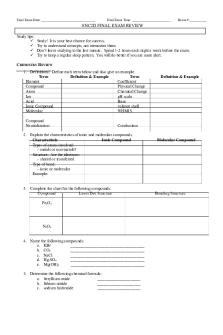
Final EXAM Review booklet
- 5 Pages
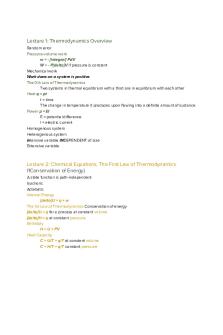
CHEM303 final exam review
- 4 Pages
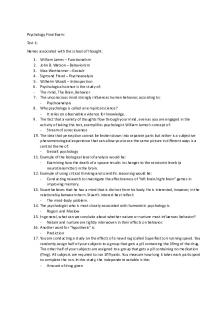
Psychology Final Exam - Review
- 13 Pages
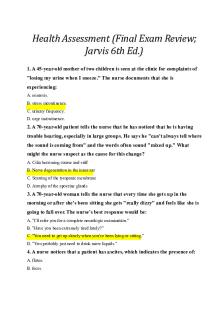
Jarvis Final Exam Review
- 12 Pages
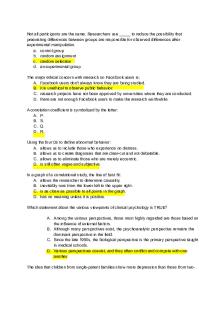
Final exam review
- 96 Pages
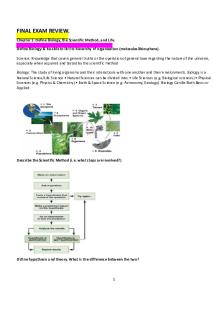
Final Exam Review
- 48 Pages
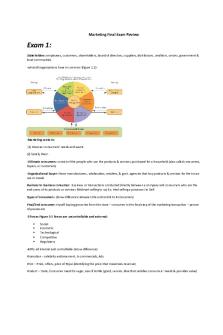
Marketing Final Exam Review
- 15 Pages
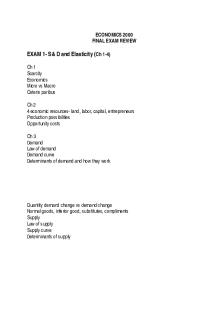
Final exam review
- 8 Pages
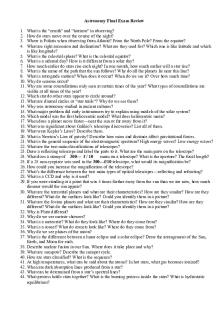
Astronomy Final Exam Review
- 2 Pages
Popular Institutions
- Tinajero National High School - Annex
- Politeknik Caltex Riau
- Yokohama City University
- SGT University
- University of Al-Qadisiyah
- Divine Word College of Vigan
- Techniek College Rotterdam
- Universidade de Santiago
- Universiti Teknologi MARA Cawangan Johor Kampus Pasir Gudang
- Poltekkes Kemenkes Yogyakarta
- Baguio City National High School
- Colegio san marcos
- preparatoria uno
- Centro de Bachillerato Tecnológico Industrial y de Servicios No. 107
- Dalian Maritime University
- Quang Trung Secondary School
- Colegio Tecnológico en Informática
- Corporación Regional de Educación Superior
- Grupo CEDVA
- Dar Al Uloom University
- Centro de Estudios Preuniversitarios de la Universidad Nacional de Ingeniería
- 上智大学
- Aakash International School, Nuna Majara
- San Felipe Neri Catholic School
- Kang Chiao International School - New Taipei City
- Misamis Occidental National High School
- Institución Educativa Escuela Normal Juan Ladrilleros
- Kolehiyo ng Pantukan
- Batanes State College
- Instituto Continental
- Sekolah Menengah Kejuruan Kesehatan Kaltara (Tarakan)
- Colegio de La Inmaculada Concepcion - Cebu

